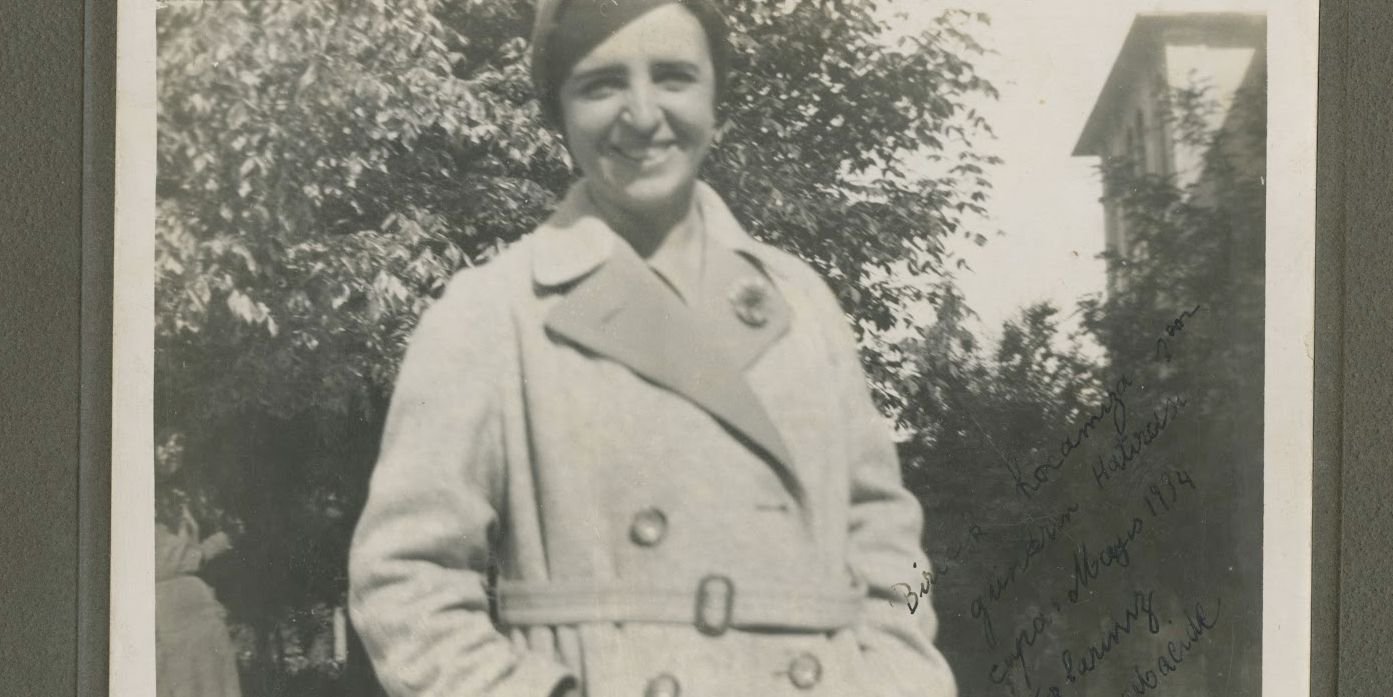Migrant Labor in Contemporary Beirut
Episode 373
hosted by Shireen Hamza and Sam Dolbee
Who do you think of, when you think of Beirut? In this episode, we speak to Sumayya Kassamali about the many non-citizen workers living in Beirut today, and how migration, race, class and gender affect their lives there. Many domestic workers who have migrated from Sri Lanka, Ethiopia, Bangladesh and other countries to work in Beirut have fled their employers' homes. Focusing on the neighborhood of Dawra, Sumayya explains the many creative ways these women find to navigate life while undocumented in Beirut, how their lives have intertwined with other non-citizen peoples, like Syrian and Palestinian refugees, and more recently, the labor organizing of a vocal minority. We discuss how these migrant workers may also be thought of as exiles, and how the idea of a normative "Middle Eastern" subject needs to change.
Stream via SoundCloud
Contributor Bios
 |
Sumayya Kassamali is currently a postdoctoral fellow at the Mahindra Humanities Center at Harvard University. She received her PhD from the Department of Anthropology at Columbia University in 2017. |
 |
Shireen Hamza is a doctoral student in the History of Science department at Harvard University. Her research focuses broadly on the history of science and medicine in the Islamicate Middle Ages, especially in the Indian Ocean World. |
 |
Sam Dolbee completed his Ph.D. in 2017 at New York University. His book project is an environmental history of the Jazira region in the late Ottoman period and its aftermath. |
Credits
Episode No. 373
Release Date: 19 August 2018
Recording Location: Mahindra Center, Harvard University
Audio editing by Shireen Hamza
Music: Special thanks to The Overseas Ensemble for permission to feature their music
Images and bibliography courtesy of Sumayya Kassamali
Release Date: 19 August 2018
Recording Location: Mahindra Center, Harvard University
Audio editing by Shireen Hamza
Music: Special thanks to The Overseas Ensemble for permission to feature their music
Images and bibliography courtesy of Sumayya Kassamali
Images
 |
| Workers Day, May 1 2016. Photo credit: Malay Firoz |
 |
| Workers Day, May 1 2016. Photo credit: Malay Firoz |
 |
| Karaoke in Beirut. Photo credit: Ghaleb Cabbabe, "Ahlein" |
 |
| Sikh Temple in Beirut. Photo credit: Ghaleb Cabbabe, "Ahlein" |
Select Bibliography
AlShehabi, Omar, Adam Hanieh, and Abdulhadi Khalaf, eds. Transit States: Labour, Migration and Citizenship in the Gulf. London: Pluto Press, 2014.
Beydoun, Khaled A. “The trafficking of Ethiopian domestic workers into Lebanon: Navigating through a novel passage of the international maid trade.” Berkeley Journal of International Law (BJIL), Vol. 24 (2006): 1009—1047.
Bizri, Fida. “Sinhala in contact with Arabic: The birth of a new pidgin in the Middle East.” Annual Review of South Asian Languages and Linguistics (2009): 135-149.
Chalcraft, John. The invisible cage: Syrian migrant workers in Lebanon. Stanford University Press, 2009.
Dahdah, Assaf. L’art du faible: Les migrantes non arabes dans le Grand Beyrouth (Liban). Vol. 7. Institut Français du Proche-Orient, 2012.
Flusser, Vilém. “Exile and creativity.” Writings: Vilem Flusser. London & Minneapolis: University of Minnesota (2002).
Jureidini, Ray. “In the Shadows of Family Life Toward a History of Domestic Service in Lebanon." Journal of Middle East Women's Studies 5, no. 3 (2009): 74-101.
Mandour, Sahar. 32. Translated by Nicole Fares. Syracuse, New York: Syracuse University Press, 2016.
Said, Edward and Jean Mohr. After the Last Sky: Palestinian Lives. New York: Columbia University Press, 1986.
Timblick, Paul, and Fasika Sorssa. No Lipstick in Lebanon. London: Random House UK, 2016.










Comments
Post a Comment
Due to an overwhelming amount of spam, we no longer read comments submitted to the blog.